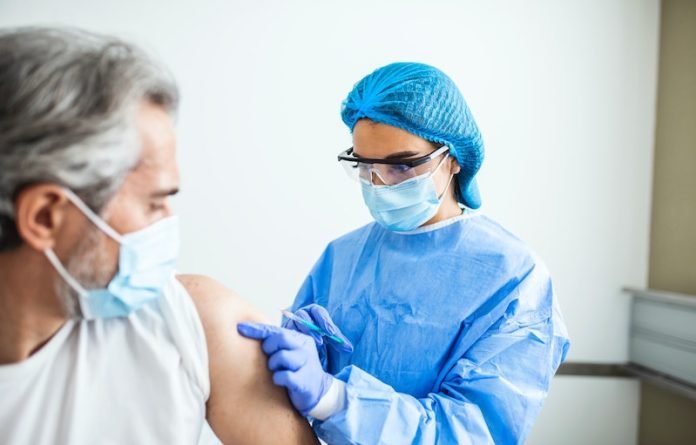
Thrombocytopenia syndrome (TTS) occurs when a person has blood clots as well as low blood platelet counts.
It’s very rare and different from general clotting conditions like deep vein thrombosis (DVT) or lung clots (pulmonary embolism).
In a study from the University of Oxford, scientists found new evidence on the risk of developing this very rare blood-clotting condition after COVID-19 vaccination.
They used health data from five European countries and the US and found a small increased risk of TTS after the first dose of the Oxford-AstraZeneca vaccine, and a trend towards an increased risk after the Janssen/Johnson & Johnson vaccine, compared with the Pfizer-BioNTech vaccine.
The researchers stress that this syndrome is very rare but say these observed risks should be considered when planning further immunization campaigns and future vaccine development.
TTS is currently being investigated as a rare side effect of adenovirus-based COVID-19 vaccines, which use a weakened virus to trigger an immune response against coronavirus, but no clear evidence exists on the comparative safety of different types of vaccines.
In the study, the team used health data for over 10 million adults in France, Germany, the Netherlands, Spain, the UK, and the US.
These people received at least one dose of a COVID-19 vaccine (Oxford-AstraZeneca, Pfizer-BioNTech, Moderna, or Janssen/Johnson & Johnson) from December 2020 to mid-2021.
Overall, 1.3 million first-dose Oxford-AstraZeneca recipients were matched to 2.1 million Pfizer-BioNTech recipients from Germany and the UK.
An additional 762,517 people receiving Janssen/Johnson & Johnson were matched to 2.8 million receiving Pfizer-BioNTech in Germany, Spain, and the U.S., and all 628,164 Janssen/Johnson & Johnson recipients from the US were matched to 2.2 million Moderna recipients.
A total of 862 thrombocytopenia events were found in the matched first dose Oxford-AstraZeneca recipients from Germany and the UK, and 520 events after the first dose of Pfizer-BioNTech.
When the data were pooled together, the team showed a 30% increased risk of thrombocytopenia after a first dose of Oxford-AstraZeneca compared with Pfizer-BioNTech—an absolute risk difference of 8.21 per 100,000 recipients.
An increase in the risk of venous thrombosis with thrombocytopenia was found after a first vaccine dose of Janssen/Johnson & Johnson compared with Pfizer-BioNTech.
But the researchers say this finding needs to be replicated in other studies before any firm conclusions can be drawn.
The team says although these events are very rare, the absolute number of affected patients could become substantial, owing to the large numbers of vaccine doses administered worldwide.
If you care about COVID, please read studies that Vitamin D levels could predict the severity of COVID-19, and how vitamin B may help fight COVID-19.
For more information about COVID, please see recent studies about people who are 5 times more likely to get COVID-19, and scientists find antibodies that can neutralize Omicron.
The study was conducted by Xintong Li et al and published in The BMJ.
Copyright © 2022 Knowridge Science Report. All rights reserved.



